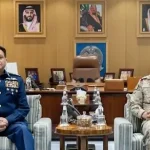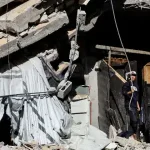All it took was a cellphone, a ‘gang’ of friends willing to participate, global media covering every second and an angry wife – and viola! the term ‘Selfie’.

Mrs. Clinton already knows how it feels to be neglected by a presidential husband and then ridiculed for what happens afterwards. The Oval Office knows how it feels to see a president apologizing to the nation for reckless emotions and warns the predecessors of the consequences thereof. Strangely enough, where the new presidents have been cautious and careful not to repeat this history, there are some who show bravery even in the face of danger; the danger of an angry wife observing her husband. The First Lady of the United States of America need not employ the NSA in ascertaining what happens in events where major global leaders are seen at a single spot; no tapping or surveillance equipment is required for the task. Depressing as it was for Michelle Obama, the dauntless President of the United States of America, who was overjoyed at his victory in the presidential elections, declaring it a breakthrough for African Americans, forgot to pay his homage to the man that made sure he got what he deserved – Nelson Mandela.
The one man, who after Martin Luther King Jr. changed the face of the behavior of the world against African people, died and on his funeral, many global leaders paid tributes in their own fashion; and then came the American president, the Danish Prime Minister and the Prime Minister of the United Kingdom, reminding the world how to pay tribute on the passing on of a great man. All it took was a cellphone, a ‘gang’ of friends willing to participate, global media covering every second and an angry wife – and viola! the term ‘Selfie’. From the inability of the American President to move away from the Danish Prime Minister to neglecting the First Lady of the United States of America, Mr. Obama was the one man who was seen ‘enjoying’ the funeral service. With Senators and Congressmen thrashing Obamacare and analysts terming Obama’s tenure as the worst of its kind back home, the world leader was seen without a care in the world.
With Angela Merkel, the Chancellor of Germany, furious on NSA’s behavior regarding surveillance on her personal cellphone and of millions of German citizens, the more recent revival of Cold-War-like behavior with Putin’s Russia and tensions escalating in Syria, all coupled with the promise of disarmament, a difficult revival of internal economy after a shutdown and the withdrawal from Afghanistan; one feels a bit awkward at what has been going on in South Africa.
Vladimir Putin is another interesting figure. He is someone who believes in the resurgence of Russia in a manner unprecedented in Soviet history. Realizing that many states in Europe have had just about enough of the European Union and its economic turbulence, Putin waits for the appropriate moment like hedid by striking a deal worth $15 billion with Ukraine. Where Europe does not see this as a healthy sign, Russia assures that it is for the best of interest and in good faith. On the other hand, seeing the European Missile Shield as a major setback to Russo-American deterrence, Russia does tacitly indicate the deployment of Iskander Short Range Ballistic Missiles as an alternative option that can reinstate any difference in the maintenance of deterrence as well as the railway based ICBM systems to counter the American ‘Prompt Global Strike Strategy’. Where, once again, the European Eastern states are in the aura of reliving the 1950s, their viewpoint about the European Union and NATO may just change in favor of Russia.
With a lot of whistleblowers hailing from the United States with much to say and tell, one of those, Edward Snowden, makes it to Russian territory and strangely enough, is admitted under political asylum. With a lot of hue and cry from the Oval Office and a lot of ‘warnings’, all Putin had to say was ‘I envy Obama’. With due consideration of the fact that the NSA has been excessively criticized on their global surveillance program under the domain of counterterrorism, the issue of unauthorized surveillance of allied nations and their leaders and the widespread issue of leaking sensitive information, Putin appreciates the intelligence and spy program maintained by the United States, calling it a state level necessity in desperate times. Where one sees Putin merely appreciating the necessity of intelligence networks, the former KGB officer has signaled that perhaps Russia intends on replicating the American model,only with all the mistakes cut out. On the winter Olympics where Putin signaled his ‘envy’ on how ‘he [Obama] gets away with things like this’, one feels a certain chill down the spine thatmaybe Russia is due to launch embark on intelligence warfare with its adversaries, whoever they may be.
But our concerns are different, more radioactive in nature. With the American President stuck in a multitude of domestic amends and foreign stalemates, the Russian President seems dauntless in what he wants. The Cold War was a gruesomely beautiful sight to see – it was a battle of ideas that was being experimented upon states willing to do anything for alliance related perks and privileges, even erode themselves internally as we saw with Korea and Vietnam. However, now we see something different. Where in the past states felt the needs of testing the limits of their military power and to test the limits of the aggression and response of their adversaries, now the states want to test the limits of the thresholds of tolerance that maintain deterrence. Dangerous and reckless as it may seem, these states have absolutely no fear of a nuclear exchange or its possible after effects.
States often resort to actions that may not seem sane moves at an obvious glanceand the crust of their strategy seems suicidal, but the core is quite the complex. Where the United States of America calculates their 1/3 reduction of nuclear arsenal from the 1970s, placing the number right where their current arsenal now accounts at, Russia finds itself on the road to a quick recovery from the Soviet Union disaster. With both these states now finding themselves jousting with each other once more, their approach is not the same as before. The US is aware of their past lavish spending on military hardware that later became an economic burden, and as they keep decommissioning military equipment that no longer serves their needs, they invest the balance amount on technology of the future. Even though the Ballistic Missile Defense Shield is seen secure and insecure at the same time, it does indicate a chance of success – enough to deter any first strike notions by adversaries.
Russia, on the other hand, has shifted paradigms of hard power of the Soviet era to soft power of the current strategic dynamics. Where the reigns of the government still change hands within a particular set of individuals and the target has not changed from Europe, Russia has learnt to keep the adversaries entangled in other issues and multi-regional expeditions, while silently maintaining a constant pressure of its existence and also showing its necessity as a regional superpower. Where now Europe is feeling the Russian pressure and the silently crumbling European Union is displaying a softer stance towards Russia by weaker close proximity nations, Russia will definitely strengthen its clutch over states that would eventually succumb to Russian existence, particularly Ukraine.
So what is next for the two states that have revolutionized the concept of deterrence and warfare? The United States may definitely withdraw from issues that keep it occupied and divert its attention to the revival of economy – not only its own but of Europe as well. The US may also remain neutral, rather docile on issues that may not directly affect the US and her allies, so it has enough potency to respond to grave situations and has enough momentum to regain its lost pride in future conflicts. Russia, however, contrary to its classical style of behavior, will avoid any hasty and aggressive interactions and will keep the pressure maintained on fragile European economies and push forward for a Eurasian Union with hopes to achieve this ‘theoretical Soviet Union’. Russia’s path would definitely be longer than expected, but if consistency is shown, they may achieve what they are hoping for, if only a fraction. Nonetheless, the situation is far from safe, as states are now investing more on advanced weapon systems and nuclear delivery platforms, just as they used to back in the Cold War days; and with most nations aiming to escalate and transform the militarization of space into weaponization, the global conventions offer little resistance, if any, to a conflict that would have elasticity in terms of escalation. I donot predict doomsday but something short of the real thing, though not at least for a decade or more.








